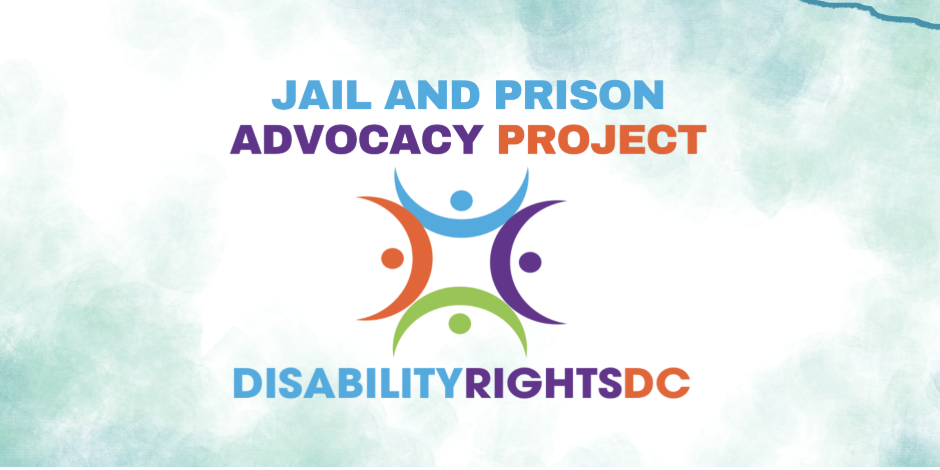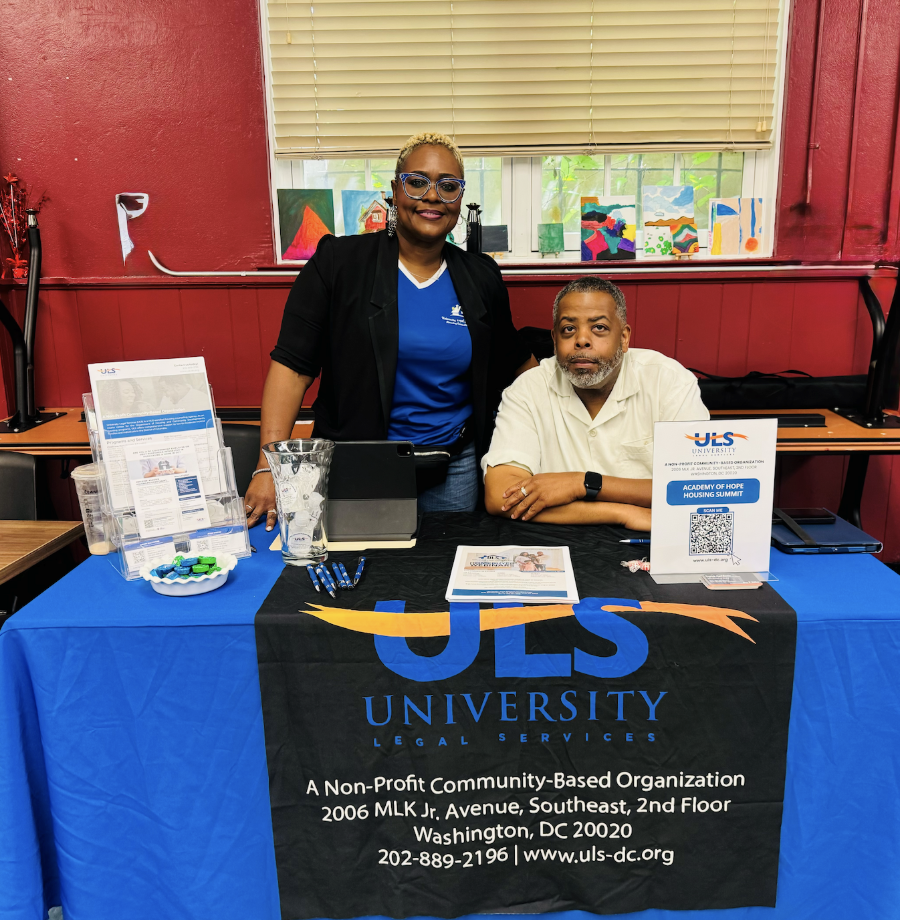ULS October Newsletter
October is National Disability Employment Awareness Month (NDEAM)! This month, we celebrate the 80th anniversary of NDEAM, an annual recognition of the positive impact of people with disabilities in the American workforce.
A Message from Our Director
This has been a hard year for many of our community members. As the federal shutdown enters its 31st day, on top of months of uncertainty for federal and nonprofit workers, many people in our city are enduring a season marked by uncertainty and fear. At ULS, our priority is the well-being and stability of our community.
If you are struggling to keep up with your rent or mortgage, or if you have experienced financial hardship that is impacting your credit, don't wait to get support. Through our Housing Counseling Program, we have HUD-certified housing counselors who can help you. We provide 100% free assistance to our clients. Reach out to us today if you need help dealing with mortgage default, or creating a plan to improve your credit, achieve financial health, or to receive rental/eviction counseling.
If you have been affected by the federal furlough, take a look at the detailed lists of resources below:
Defense Civilian Personnel Advisory Service (DCPAS) Furlough Resources and Support – a comprehensive list of national, regional, and state programs offering financial relief, housing and utility assistance, and community support.
Additional Furlough Resources – details on specific offers from banks, credit unions, and service providers, including loan deferments and emergency aid.
DC Assistive Technology Program
DCATP Collaborates with Occupational Therapy Students from Howard University
The DC Assistive Technology Program (DCATP) is excited to partner with occupational therapy students from Howard University on a community cane drive as part of their class project. The donated canes will support DCATP’s DC Shares Equipment Recycling Program, which provides free durable medical equipment to low-income DC residents with disabilities, as well as DCATP’s Cane and Walker Clinics—like the one recently held at Horizon House in September 2025 (pictured below).
The students will promote the drive by posting flyers in local medical offices and community spaces across DC, encouraging residents to contribute. They are requesting donations of metal canes, new or gently used.
The cane drive will take place on Sunday, November 2, 2025, from 10:00 AM to 5:00 PM at the Howard University College of Medicine (520 W Street NW, Washington, DC 20059).
Bring new or used canes to support their project and the DC Assistive Technology Program!
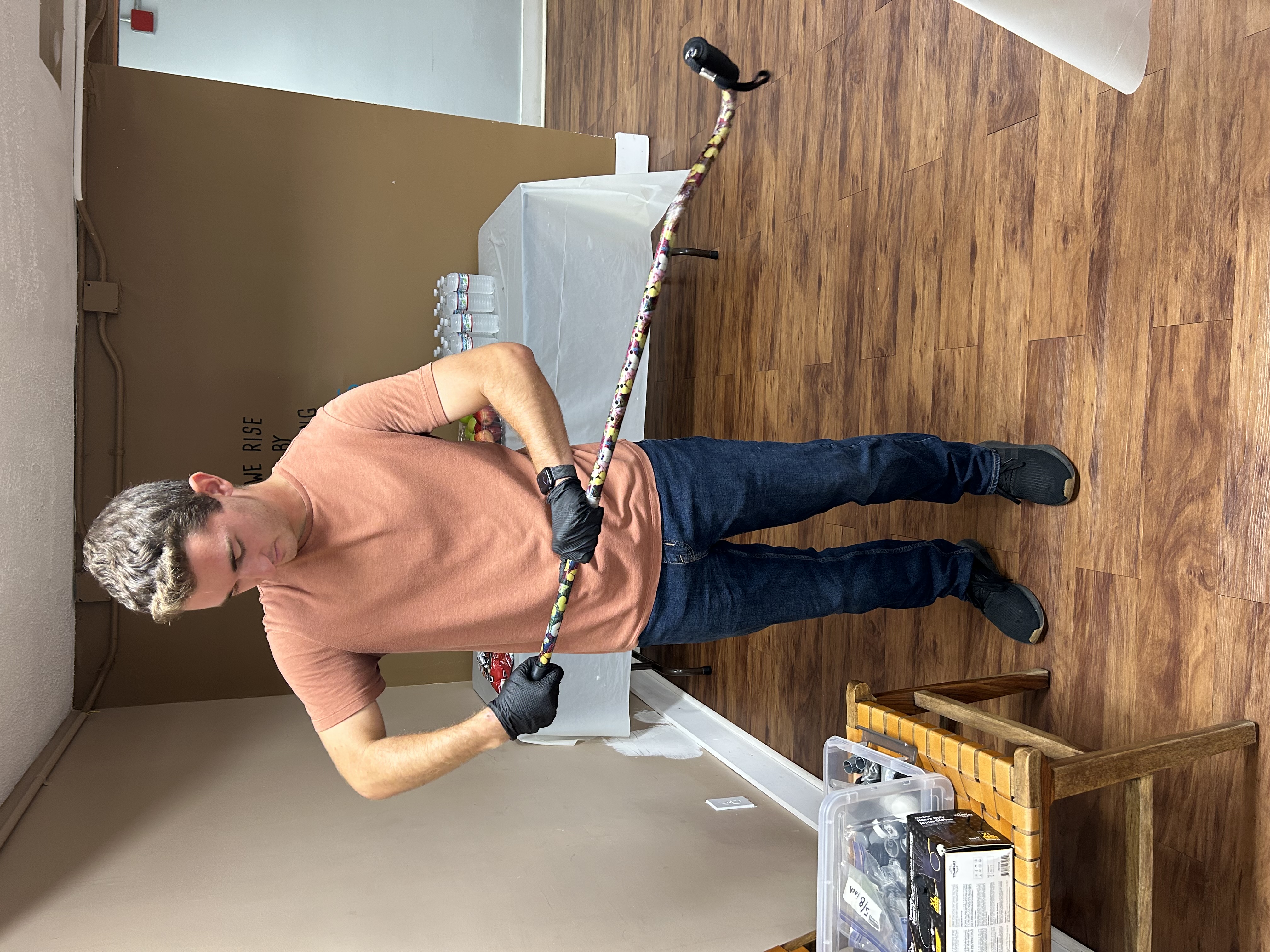

Disability Rights DC
DC’s 2025 Employment First Summit
On October 8th, DRDC attorney Chloe presented at the fourth annual DC Employment First Summit, convened by the DC Developmental Disabilities Council (DD Council). This was a great opportunity to kick off National Disability Employment Awareness Month and share important resources about disabilities in the workplace.
The Employment First Summit is an annual gathering that brings together community members, employers, advocates, and policymakers committed to advancing employment opportunities for people with disabilities. The summit is free and includes a resource and networking fair, interactive learning sessions, and opportunities to connect with the disability community in DC.
Chloe presented on employment rights that people with disabilities have in the workplace, including when employers can ask disability-related questions, and how employees can request reasonable accommodations in their workplace.
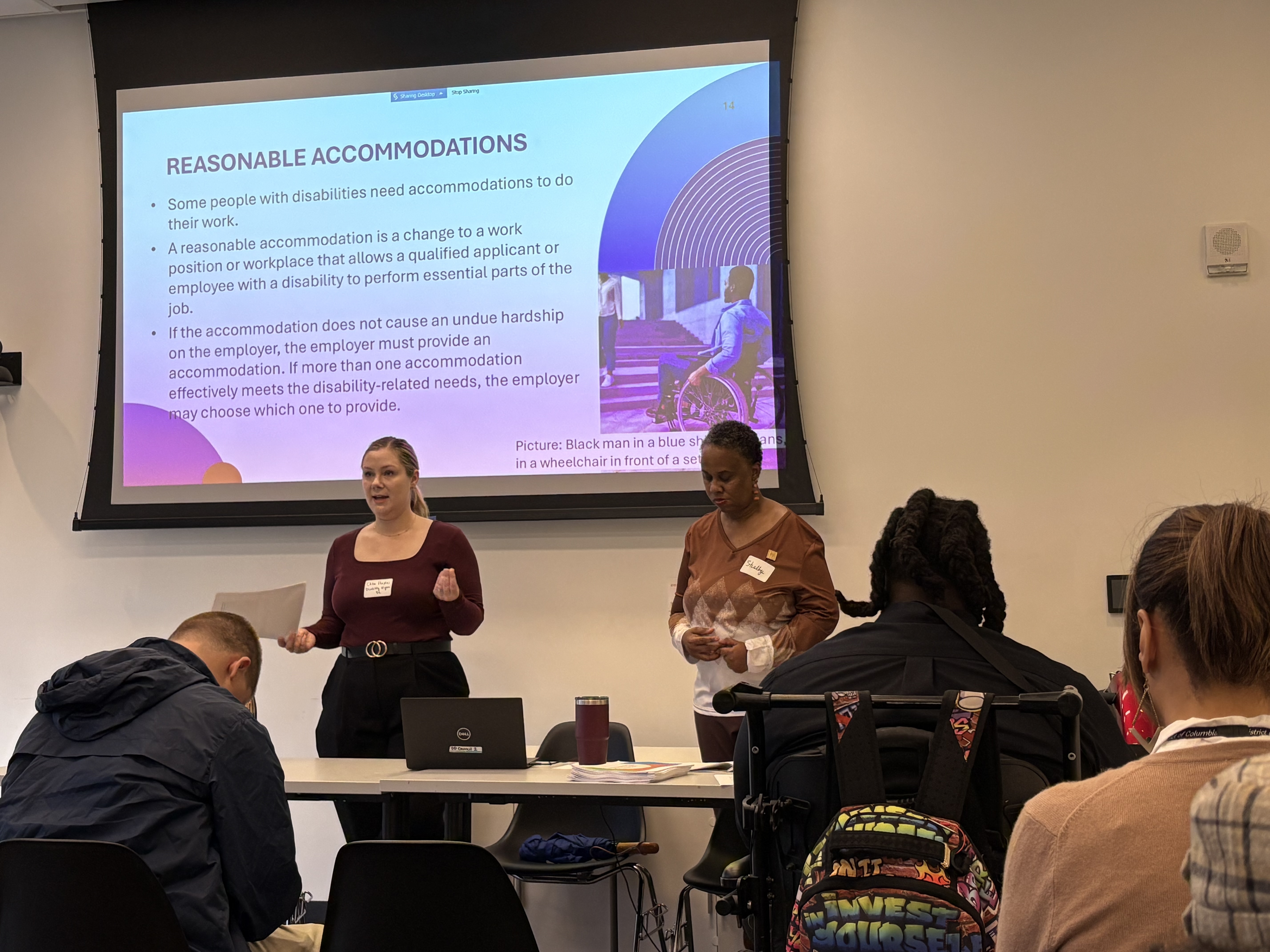
Back-to-School with DRDC
DRDC has been busy the past couple of months doing outreach to high school students with disabilities about the availability of pre-employment transition services from the DC Rehabilitation Services Administration (DC RSA).
DRDC was at ten back-to-school nights and resource fairs talking to students. All students with an IEP or 504 Plan are eligible for pre-employment transition services from DC RSA, services which include career exploration, internships, and workplace readiness training.
Do you have a student with disabilities? Learn more about the resources available for them:
Client Assistance Program Brochure
Student Earned Income Exclusion Fact Sheet
Housing Counseling Program
HPAP Update: Ending the Lottery Program
The Home Purchase Assistance Program (HPAP) is changing. Applicants will no longer be entered into a lottery program. Instead, they will be assisted on a first-come, first-serve basis. Current HPAP Notice of Eligibility(NOE) and Notice to Continue (NTC) holders will be assisted in order of their initial application/NOE date.
If you have not yet applied for HPAP or received a Notice of Eligibility, or have any other questions, please contact your Housing Counselor or visit Eligibility/How to Apply for more information.
Eligible applicants can receive a maximum of $202,000 in gap financing assistance and an additional $4,000 in closing cost assistance. The HPAP loan for borrowers with incomes below 80 percent of the median family income.
HCP at the H Street Festival
On September 20th, the Housing Counseling Program (HCP) tabled at the H Street Festival- one of the most anticipated and highly attended single day festivals in DC!
The festival includes stations that focus on participatory artwork, informational stations that promote arts education, and booths for local organizations like ULS.
We were able to give away over 90 goodie bags filled with useful everyday items and connected with agencies that were interested in hosting workshops and presentations with HCP.
This was a fantastic opportunity to connect with the community right in our backyard- our booth was set up just a few blocks away from our Northeast office!
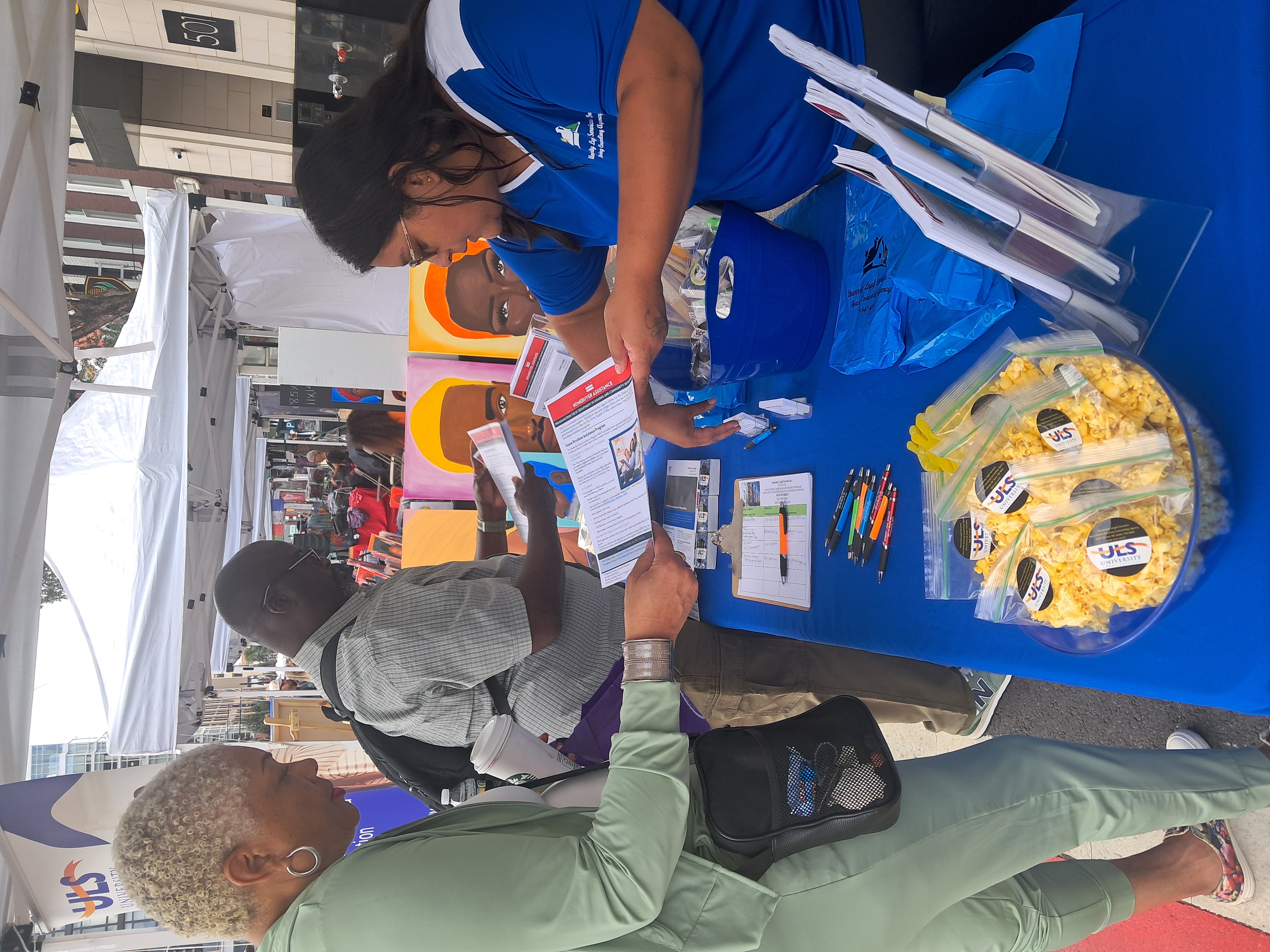
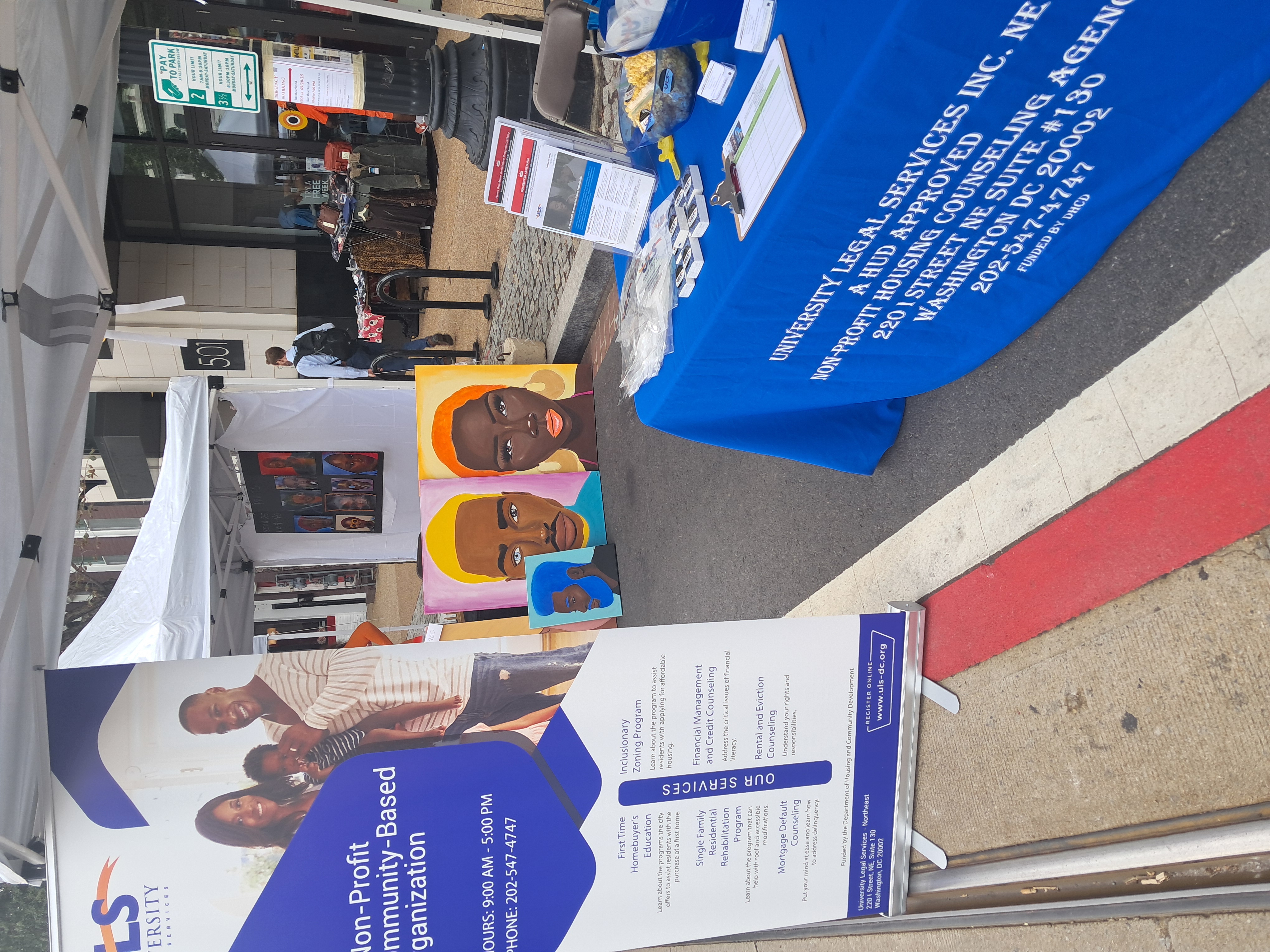
Check Out Our Housing Webinars!
Every month, the Housing Counseling Program (HCP) holds webinars to help residents navigate DC’s housing programs. Our webinars cover the Home Purchase Assistance Program (HPAP), the Inclusionary Zoning (IZ) Program, and the Single Family Residential Rehabilitation Program (SFRRP). We also offer select webinars in Spanish. Learn more and register below!
Jail and Prison Advocacy Program
Protect Second Chances
This fall, Congress moved to intervene in laws that have helped hundreds of District residents rebuild their lives. During a September 10, 2025 committee markup, House members advanced a package of bills that would weaken or repeal key “second look” reforms — including the Incarceration Reduction Amendment Act (IRAA) and the Second Look Amendment Act. The IRAA and its 2020 expansion, the Second Look Amendment Act, allow individuals who committed offenses before age 25 and have served at least 15 years to request a sentence review. These laws reflect research showing that young people’s brains—particularly those governing impulse control and judgment—continue developing well into their twenties.
Early outcomes from these reforms are overwhelmingly positive. According to advocacy analyses, individuals released under IRAA and related provisions have a recidivism rate below 3%—far lower than national averages. Recipients must meet a high bar to be released, and many have come home to support families, pursue education, and become community leaders.
Another bill in this package—H.R. 4922, the D.C. Criminal Reforms to Immediately Make Everyone Safer (DC CRIMES) Act—would be particularly damaging to community safety by allowing youth to be tried as adults. The bill would limit youth offender status in the District to individuals 18 years of age or younger and prohibit the D.C. Council from enacting changes to existing criminal liability sentences. If enacted, this legislation would strip D.C. of its ability to adapt laws based on current research and would push more young people into the adult criminal system, where outcomes are consistently worse for both individuals and public safety.
Scaling back second-look opportunities and youth justice reforms would harm D.C. communities by undermining reentry, increasing incarceration costs, and weakening public safety. Stable reentry pathways reduce recidivism, strengthen families, and promote economic participation. Instead of reversing proven reforms, policymakers should invest in what works: opportunity, support, and second chances.
Money Shouldn’t Decide Freedom
Federal lawmakers are pushing to reinstate cash bail in DC, reversing decades of local progress toward a fairer and safer pretrial system. Unlike many jurisdictions, DC eliminated cash bail in 1992—recognizing that the ability to pay should not determine who waits for trial at home and who sits in jail.
Across the country, states that have reduced or ended cash bail have seen that it punishes poverty, not risk. People are detained pretrial not because they’re dangerous or likely to flee, but because they can’t afford even small bail amounts. Research has shown that being jailed for a short time before trial makes someone 30% more likely to plead guilty ‒ even if they are innocent ‒ just so they can go home sooner.
D.C.’s current system works. About 9 in 10 people released before trial return to court and remain arrest-free, outperforming many jurisdictions that rely on cash bail. Reinstating a wealth-based detention system would undo years of progress and once again make freedom dependent on income rather than justice.
JPAP recently signed on to a letter to members of the U.S. Senate asking them to reject the bills threatening bail reform and strip away the rights of the DC Attorney General.
Tenant Purchase Assistance Program
The ULS Tenant Purchase Program’s applications on behalf of three affordable housing cooperatives to the DC Department of Energy and the Environment (DOEE) Solar for All Program were approved, and to date, approximately fifteen income-eligible households have been approved to receive solar electricity credits on their monthly PEPCO bills.
Households' monthly bills will decrease by about 50% for an estimated fifteen years, and resulting in total savings of up to $500 per year. These savings will be a big help to households who are experiencing cost inflation throughout their household budgets.
.png)


